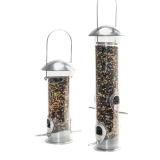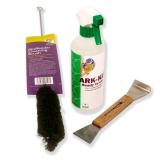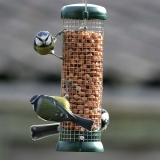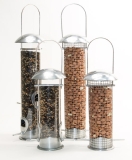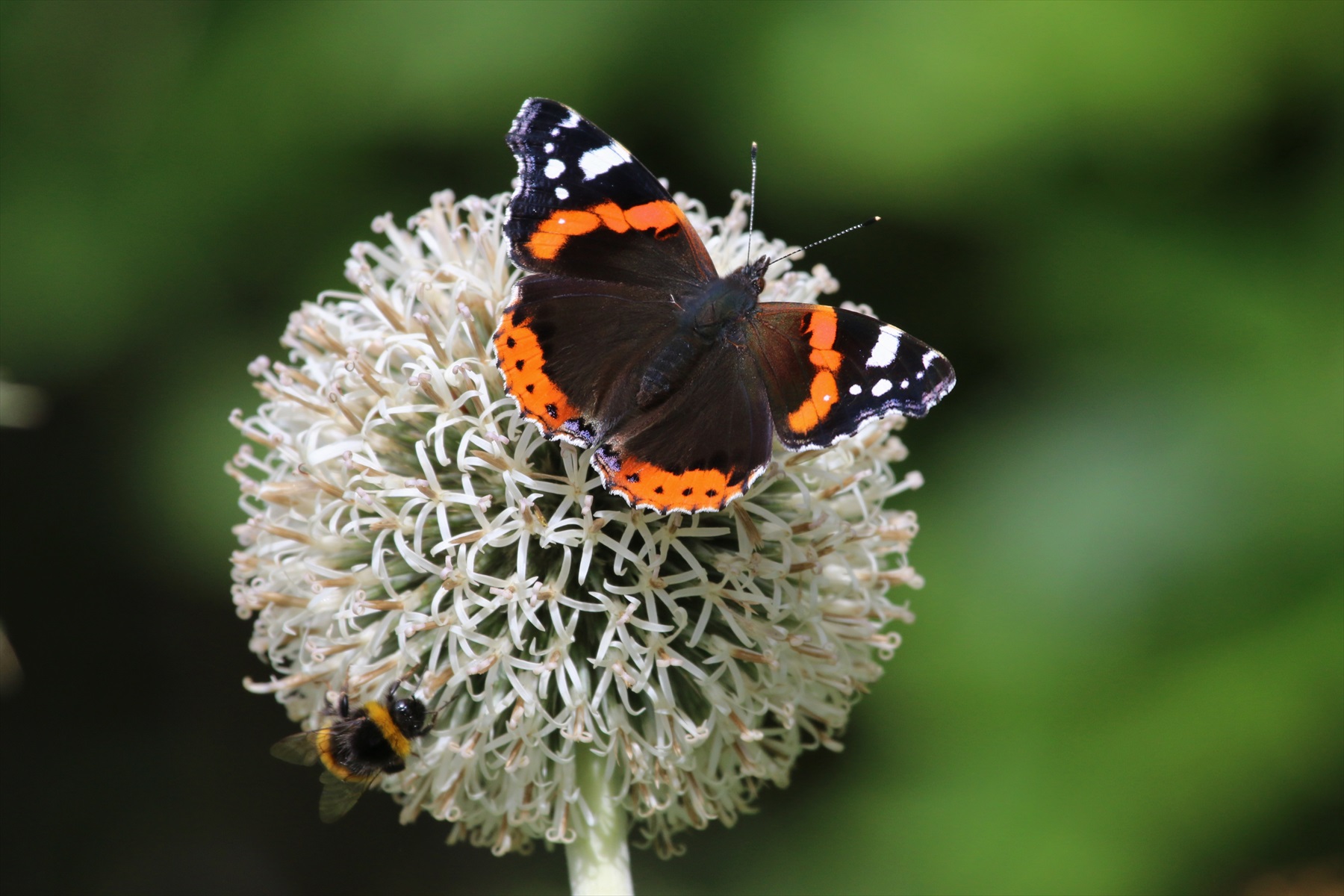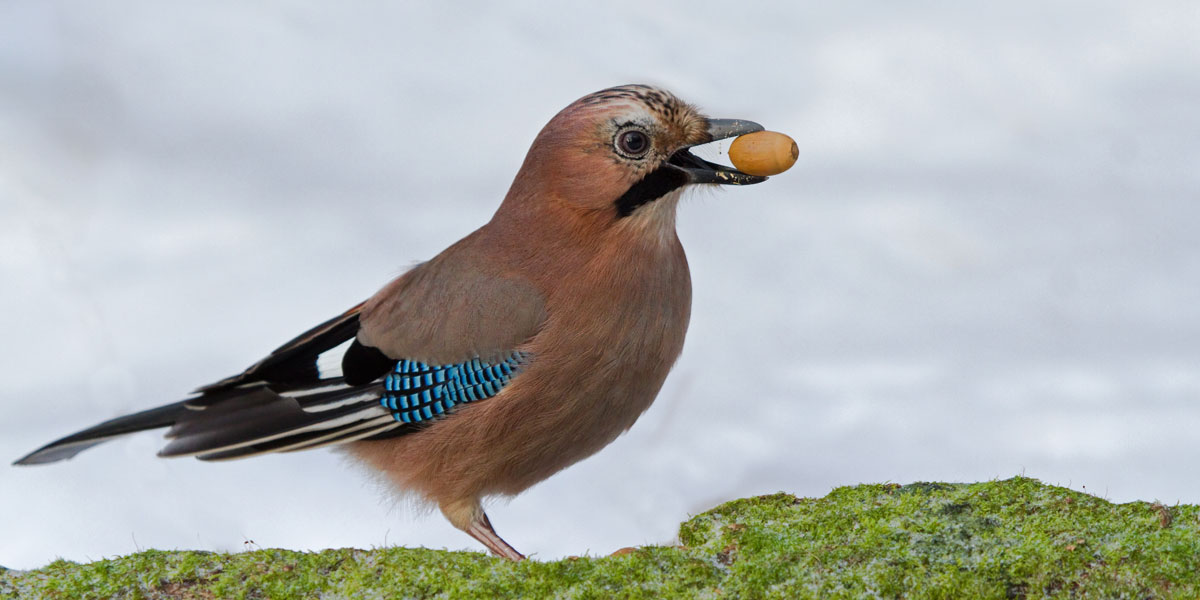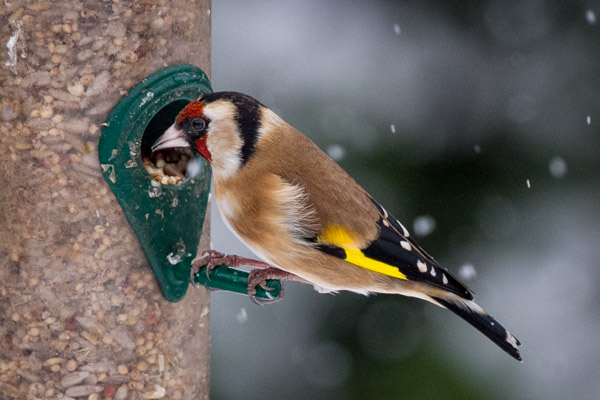Explore Our Garden Wildlife Blog
Browse or search by Category or Keyword below, alternatively click on any Tag to see related articles.
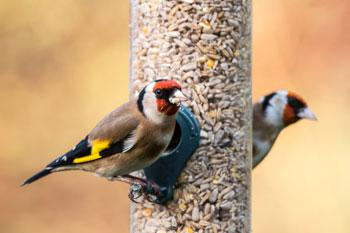

Why won’t birds come to my feeder!? An expert guide
By Ark Wildlife
29th November 2021
Last Updated: 11th April 2024
Filling your bird feeders and watching the daily visitors is a joy. But why would your birds stop visiting? You fill the feeder with bird food, watch and wait. You come back regularly to check to see what visitors are there. But still not so much as a tweet. It can be disappointing and frustrating, leaving you thinking: ‘Why aren’t birds coming to my feeder?!’
There could be a number of reasons why birds are no longer eating from your feeder. Luckily though, there are actions you can take to change that and encourage them to return. We list seven common reasons below.
Seven reasons why birds are no longer eating from your feeder
It can be disheartening, but the answer could be that it simply takes time. Perhaps you’ve recently moved house, moved the bird feeder, or you’ve taken the feeder down while you do some garden work — you local birds will need to rediscover their food source.
But there also could be other factors at play. Take a look at the potential issues and their solutions below:
1. You’re using poor-quality seeds
Beware of cheap bird food. Some bird food suppliers cut their costs by using filler in their food mixes, which the birds won’t touch. The filler can be anything from split peas to crushed dog biscuits (really!). If you put this poor-quality bird food out. your local birds will know the difference and avoid it.
We care deeply about wildlife at Ark so we pride ourselves on supplying extremely high quality bird food and we couldn’t imagine it any other way. Why wouldn’t we want to give our birds the safest food, designed specifically for their nutritional needs?
2. The bird food has been left out for too long and gone bad
Birds won’t eat food which has gone bad, and who can blame them? They instinctively know that bad food could make them sick or could even be lethal. To find out if that’s why your birds are not using your bird feeder, inspect the food — how does it look and smell? Check for mould, insects or larvae. Smell the seed for mould and mildew (mouldy seed smells musty). Check to see if the seed is discoloured (this can be a sign of fungus). Seed which is clumped together or sprouting is wet and also not fit for birds to eat.
3. The bird feeder needs a clean
Bird feeders must be cleaned regularly to make sure that the spread of disease is minimised and that the food in them remains clean, fresh and appealing to birds. If you have a hanging, open or large bird table, these all need to be cleaned regularly too.
To make sure that your bird feeder is attractive to birds, there are a number of things you can do:
- Choose easy-to-clean feeders
- Use a bird feeder disinfectant or a hygiene kit
- Soak the bird feeder before starting to scrub for a squeaky-clean finish
- Clean in all the nooks and crannies where bacteria can lurk
- Use a scraper tool for dried-on dirt and wear rubber gloves to avoid contamination
- Dry everything carefully: any leftover moisture can quickly lead to mouldy seed
4. Your bird feeder is either too high or too low
Garden bird feeders need to be placed where birds feel comfortable. Bird feeders can’t be placed too high for birds, they certainly aren’t scared of heights — but it can be placed too high for you to access it to clean it regularly and remove old food.
Bird feeders can also be hung too low. Don’t hang the bird feeders within the claw-swiping reach of an opportunistic cat or within jumping distance for a cheeky squirrel – squirrel baffles for bird feeders can also add an extra layer of protection. Alternatively, you can try an anti-squirrel bird feeder.
4. Your bird feeder is in the wrong location
It may be that it’s simply in the wrong location. If birds feel uncomfortable and unsafe, or the location is inconvenient, they will not use the feeder. Consider:
✔ A natural spot for feeding near shrubbery
✔ A quiet location away from children’s garden equipment and garages
✔ A safe place with nearby shelter to retreat to if needed
✔ A visible location — the birds need to see it
5. Your neighbours may have a more attractive bird feeder than you
Keeping up with the Joneses might be wise in this case! The neighbour doesn’t have to be next door — birds travel large distances to visit their regular food sources. So it could be that they simply have a new, better food source and so stop visiting yours. Offer different types of food so that your bird feeders appeal to different species. You need to supply food all year round, but make sure that the food you supply is rich and calorific during the winter months. Fat balls and mealworms are always welcome treats. Why not try one of our popular no mess mixes such as our suet mix or mealworm food mix?
6. A predator might be causing birds to avoid your feeder
It could be that a predator is scaring your garden birds away. If your garden is also the territory for your cat or a neighbour’s cat, then the birds will stay away. If the birds are suddenly not using your bird feeder, a new cat could have arrived on the scene! It’s not just cats who could be scaring them away, it could be a new, noisy dog nearby, badgers, foxes, rats or squirrels. Sparrowhawks can also scare birds from feeders. If they find a source of food (small birds on feeders for example) they will regularly revisit, often at the same time every day, looking for more opportunities.
7. The birds may have migrated away
What does it mean when there are no birds around? Well, most migrating birds will begin to head south for winter in September, but some can leave earlier. You’ll soon be able to spot new species of birds moving in for winter. Make sure that you offer some popular seeds like black sunflower seeds, so that you can attract some new visitors while the migrating birds are on holiday.
External sources/references






